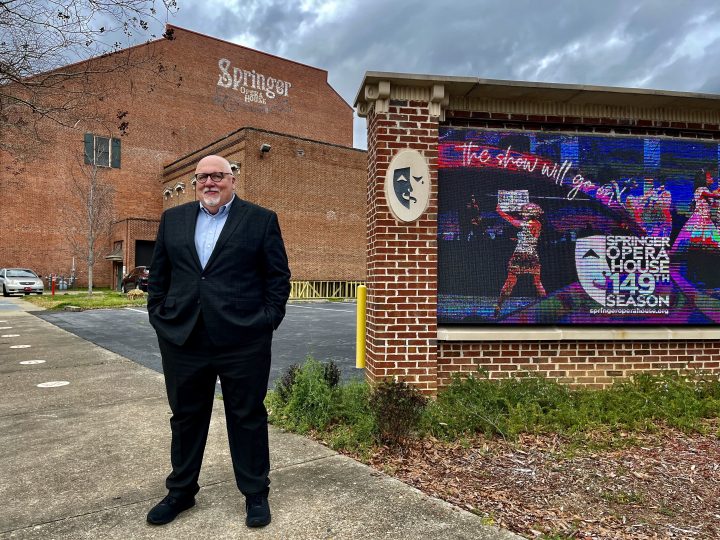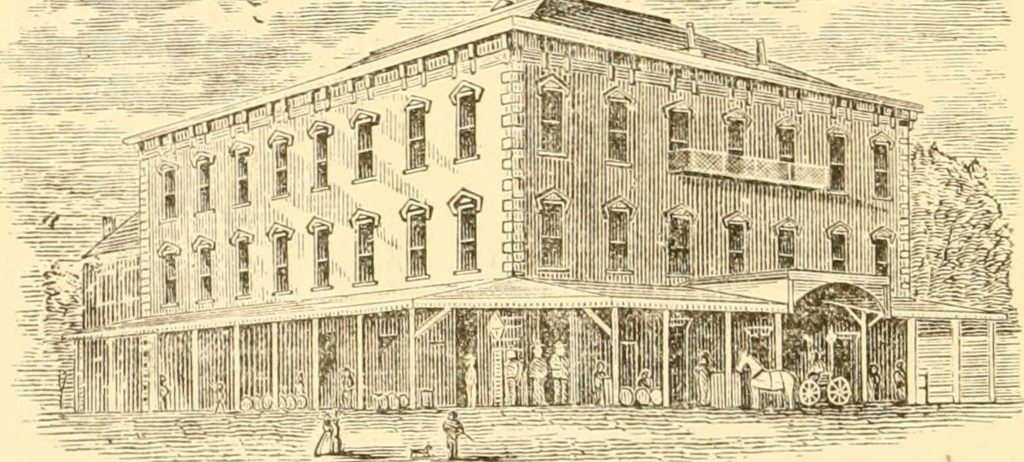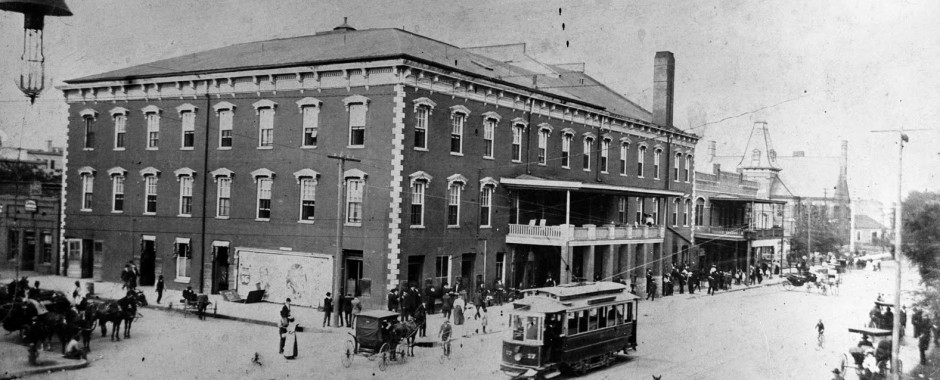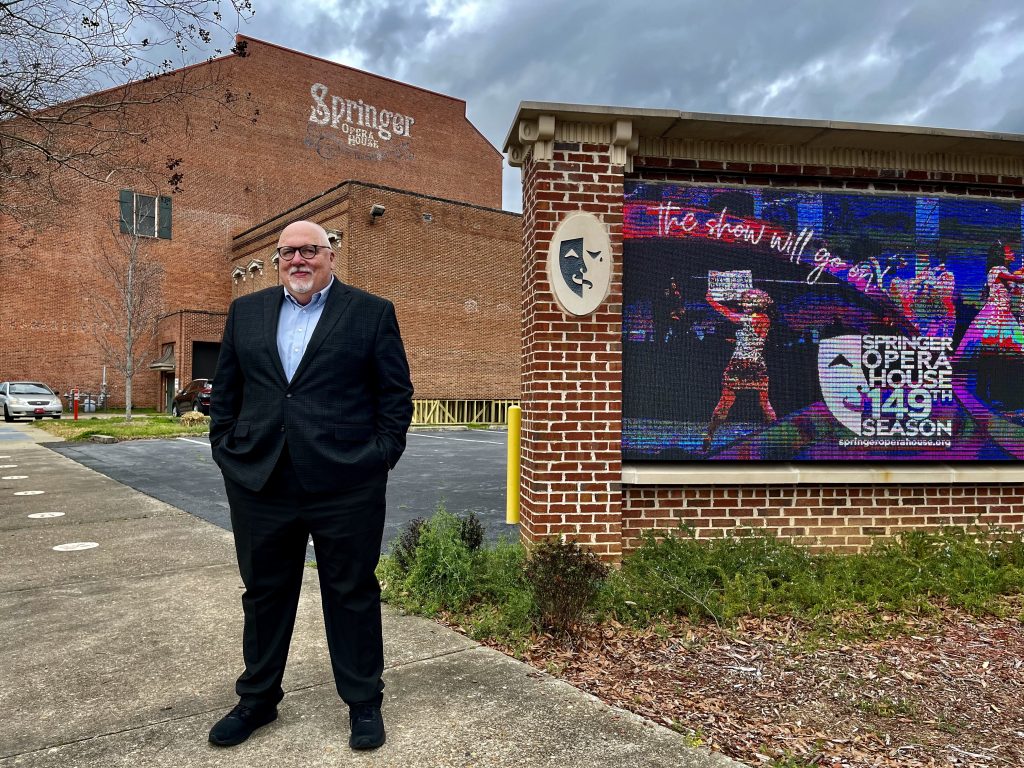
Part 1 of 2 with the Producing Artistic Director of the Springer Opera House
What qualities make for a great theater?
“Of course, there is the excellence of the work itself.
But one of the things I’ve learned over my career is authenticity in terms of leadership and direction of the organization, but also of service. It’s relatively easy, once you know how to do it, to do great plays and put great plays on stage.
But the question that I’ve always asked myself, and that I have encouraged Springer personnel to always ask, is: ‘What can we do to make the world a better place? And if we do have a choice, Why don’t we make the world a better place today?’ And then to build that into all of our decision making. We want the community to be stronger and more prosperous; we want families to be stronger and we definitely want young people to have more choices as they grow up.
If you’re not careful, show business can become narcissistic. You begin looking at yourself a lot and thinking about: ‘My time on stage! My costume! My big moment! My lines!’ That’s always a danger and I think it’s a threat.
One of the things we say around here is that the most important person on stage is your scene partner. Not you. Everything you need to know about putting on a great performance is coming out of the mouth of your scene partner. That causes the artist to listen more. And causes the artist to listen better. And listening is good for the world. That’s something that ends up being integrated into the work.”
Why did you choose a life in theater?
“I’m going to confess that I came to the theater relatively late. There was no drama program in my high school. I didn’t end up seeing my first play until I was a freshman in college.
I didn’t know what I was going to do with my life at that point. But I come from a family of Southern storytellers. There was a lot of storytelling in my family. And you know what? That’s the South — we are storytellers. You gather around the table at Thanksgiving, then gather around the table next year, and you’re going to hear some of the same stories. What’s cool about that is even after that original storyteller passes away — an uncle, a grandfather, a father — the stories stay alive. Other family members pick them up and it becomes part of the identity of the family. So I learned early on, storytelling creates identity. And I didn’t know what my identity was, as is true with most young people.
When I saw my first place at the University of Georgia, I was an art major at the time. That was my third major; I was a sociology major at some point. I think every quarter I changed majors. But then I saw the children’s theater play. There they were in their costumes, there was light on stage, everybody knew their lines. It was all together!
I sat there and I had that moment: ‘I could do this. I could do this.’ That was the beginning. I declared myself a drama major at that point.
Part of what was driving me early on was insecurity. Because there were a lot of people in the theater department at the University of Georgia who had grown up in theater, attended Governor’s Honors programs, participated in thespian festivals, all that kind of stuff. I didn’t know any of that.
So my ears were open, I was watching people a lot, and I was trying to learn as fast as I could. One thing I learned is that there were a lot of storytellers in that department, as well. And so I fit in. I liked the vibe of collaboration and storytelling. I had no idea what my life or career would look like at that point, but I did know and understand that I had found a place for me.
One of the things we learn in theater — you see it in theater departments, you see it in high school programs, and you see it in theaters like the Springer Opera House — is that oddballs are welcome. Oddballs wash up on our shores all the time. The theater community is not the kind of community that rejects oddballs. We see them coming and we say, ‘That’s me. These are my people.’
That means that there are people who feel out of place or rejected in other contexts, but when they wash up on the shores of a theater community, they feel like they found their place. I love that part of theater. And as a leader in theater, I do my best to create a comfortable, welcoming environment for the oddballs.”

Below: Springer Opera House, circa 1910

How was the Springer able to make it to its 150th birthday?
“A lot of it has to do with the original inspiration, the impetus, for building the Springer Opera House. An immigrant from Alsace in eastern France along the Rhine River came to Columbus. This was in the summer of 1850. When he landed here, he most certainly couldn’t speak the language very well. Once he started speaking English, he probably spoke with an accent the rest of his life. But he came from a part of the world where even the smallest villages had beautiful little jewel-box theaters.
Francois — people around here call him Francis but he was born Francois Joseph Springer in the little village of Marlenheim in Alsace — his family for generations were grocers and wine merchants. In Columbus, a distant relative of his mother had married a man named Phillip Gettinger, who owned a grocery business on this site. Francois went into business with him, and a few years later married his daughter, Emily. After Philip Gettiner passed away, Francois became sole owner of the grocery business on the corner of 10th Street and First Avenue.
Then comes the Civil War. Columbus’s foundries and mills were burned to the ground. The city was in a deep economic depression and was faced with the questions, ‘What will become of us? What does our future look like?’
This immigrant decided, I know just what Columbus needs. It needs a European-style opera house three blocks from the riverboat landing. So he put together some investors and they built the Springer Opera House which opened in February of 1871.
So think about it: This guy with an accent, who had only been here 15 years, had to be regarded as the town nut, at least for a while. Because he thought the most important thing we can do after the Civil War was build a European style opera house. But, again, Francois came from a culture where theater, dance, music and opera were celebrated and part of community life.
He also came from a river town. Much like the Rhine, the Chattahoochee River was an interstate highway. You could come up from the Gulf of Mexico but you could not come on a steamboat any further north than Columbus, because this is where the Fall Line is. So if you were traveling to some other locale, you came up the Chattahoochee River from the Gulf of Mexico and then you had to get on a train or stagecoach to go elsewhere. You were weary from your voyage and Francois knew that.
So he gave them a place to stay for a few days while they rested up. So besides the entertainment in the Springer Opera House, he had a restaurant, he had a saloon, he had a pharmacy, a grocery store of course, and on the third floor he had a hotel. He wanted to get all their money while they were in town. He used theater and entertainment as an economic development tool. It benefited him but it also benefited the community at large.
I would say that’s what we’re still doing today. We’re part of the economic development mechanism of Columbus, Georgia, attracting visitors and attracting capital investment to the downtown area. We’re very much in the entertainment business and we’re in the economic development business.”
Fast forward about 100 years and the push to save the Springer started Historic Columbus, which ultimately saved a lot of our most precious assets.
“You can drive around town, even downtown in the Historic District, and you see structures that were built before 1966, when the Historic Columbus Foundation was started, and you think, ‘How in the world were these people allowed to build these structures within the environment of all these grand historic buildings?’
That’s because there were no rules, there was no zoning, there was no historic preservation ordinances. Post-Springer renovation in 1965, and post-Historic Columbus Foundation founding in 1966, all of that changed. We created historic preservation ordinances and we began to think of these old structures as assets. That had not been happening before.
Before the Springer was saved and reopened in 1965, this entire block was slated for demolition. The new Government Center needed parking and this entire block was going to be a surface parking lot. And why not tear down that old theater across the street and put in a parking lot? Like the Joni Mitchell tune, ‘They paved paradise and put in a parking lot.’
Everybody thought that building over there — the way it looked and the fact that it was a high rise — they thought that was the future of Columbus, Georgia. The saving of the Springer in 1965 shifted that frame of mind and they realized, ‘No, this is the future of Columbus, Georgia.”

